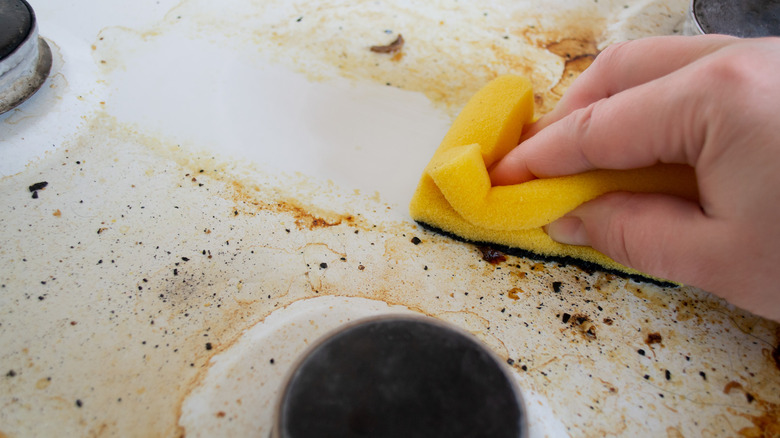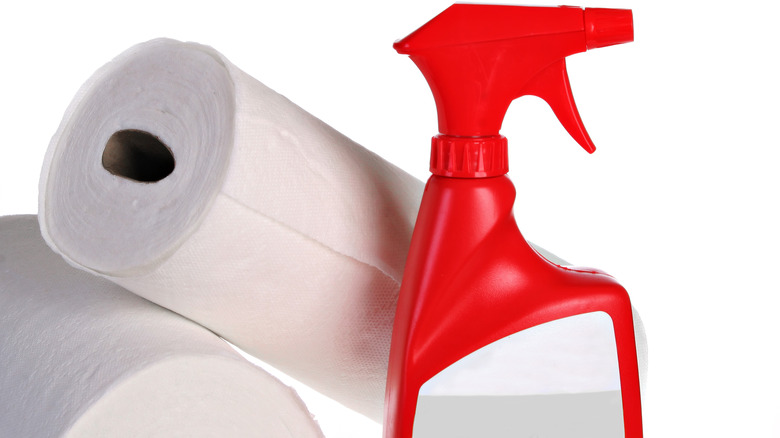You Should Never Clean Up A Food Spill With A Sponge. Here's Why
Most of us probably keep a sponge or two in the kitchen. They are great for washing dishes, scrubbing stubborn grease spots, and some of us probably use them to wipe down our surfaces and keep our tables and counters free of spills. While sponges are no doubt a useful kitchen tool, they shouldn't be used for everything. In fact, using kitchen sponges to clean certain spills can actually do the opposite of what we want by spreading germs and contaminating surfaces rather than cleaning and disinfecting your home.
Germs and bacteria have been shown to linger on sponges, which can contain millions of bacteria, according to Eat Right. Therefore, to reduce the risk of spreading germs, which can make you sick, to other surfaces of your home, experts do not recommend using sponges to wipe down your countertops. Food spills in particular should never be mopped up with the same reusable sponge you use to clean other parts of your kitchen. Cleaning meat and poultry spills with sponges is especially dangerous, since it can facilitate the spread of raw meat juices, which contain foodborne pathogens that can cause illness, according to The Kitchn. Bacteria can become trapped inside the sponge and then spread to other surfaces via that same sponge, unless the utensil is thoroughly cleaned and disinfected between uses.
Food spills are best cleaned with disposable items like paper towels
When it comes to cleaning up any food spills, using disposable items is the best way to ensure germs are not spread from surface to surface. Paper towels or disinfectant wipes can be used to wipe the area and then simply tossed in the garbage, effectively eliminating any risk that foodborne illnesses or bacteria will be spread from the sponge to other areas of your home, according to The Kitchn.
As sponges can carry germs, even the ones used to wash dishes should be rinsed thoroughly to ensure they have no loose food trapped inside and allowed to dry completely. They should also be disinfected regularly. To ensure your sponge isn't harboring any gross, harmful germs, simply soak them in a solution of 3/4 cup of bleach diluted in 1 gallon of water for five minutes, then rinse thoroughly, according to Good Housekeeping. The bleach solution will eradicate any lingering germs, bacteria, or viruses. Microwaving them for one minute has also been shown to be a good way to quickly eliminate up to 99% of bacteria, via Eat Right. And of course, once a sponge becomes old and smelly, or after two to three weeks, it should always be tossed and replaced with a new one.

